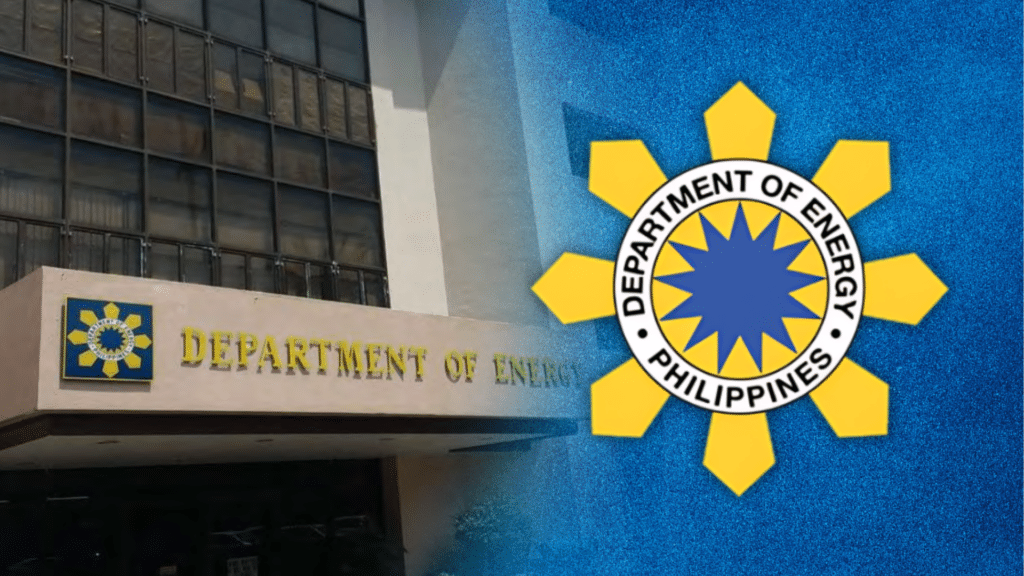
FILE PHOTO: Department of Energy (DOE) facade. Images from DOE / INQUIRER FILES
The Department of Energy (DOE) finally decided to drop the run-of-river (ROR), an energy technology originally included in the third round of green energy auction this year.
The agency said the move was “in view of the ongoing Feed-In-Tariff (FIT) System for ROR Hydro, which to date remains undersubscribed.”
The Energy Regulatory Commission (ERC) said in December it could not yet issue the bid price for ROR given pending issues on policy matters.
READ: PH aspires to be next green power paradise
ERC chair and chief executive officer Monalisa Dimalanta said the commission was referring to the supposed “parallel implementation” of the FIT and Green Energy Auction Program (GEAP) for run-of-river hydro.
FIT is another initiative meant to provide fixed rates to emerging clean power sources. GEAP, meanwhile, is designed to accelerate the transition to renewable energy.
“We noted that there is still unsubscribed capacity for FIT for this technology yet there is additional capacity allocated for GEAP,” Dimalanta earlier said.
In a briefing on Monday, the ERC official also confirmed this development.
“The DOE decided to retain it under the FIT so we will now sit down and discuss it as a revision to the FIT rate,” she added.
Meanwhile, the DOE said it would conduct the auction proper in February, a delay from the initial target of conducting it within 2024.
The new round of clean power bidding will focus on geothermal, impounding hydro, and pumped-storage hydro.
“The administration of GEA-3, with the majority of the capacity coming from PSH (pumped-storage hydro), will pave the way for greater entry of RE energy in the grid’s energy mix, provide grid stability and reliability, foster a cleaner and more sustainable future, and at the same time ensure a transparent and competitive selection process of RE facilities,” the DOE said.
The government has an ambitious target to scale up clean energy’s contribution in the power mix to 35 percent by 2030 from the current 22 percent.

